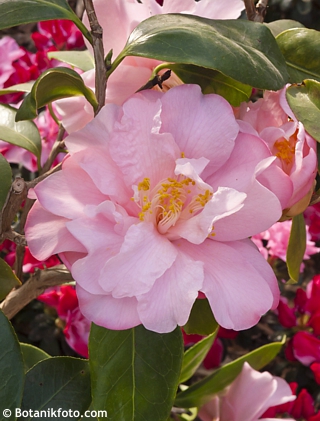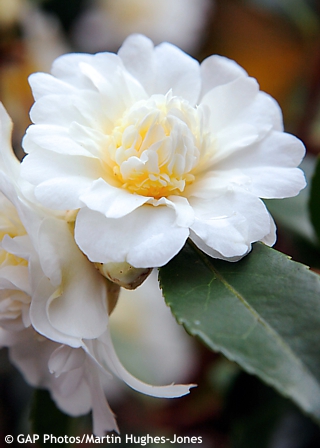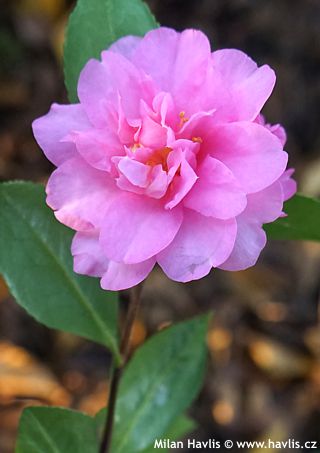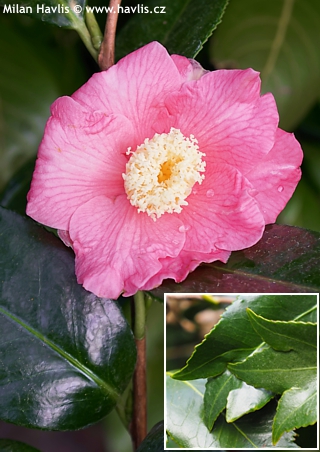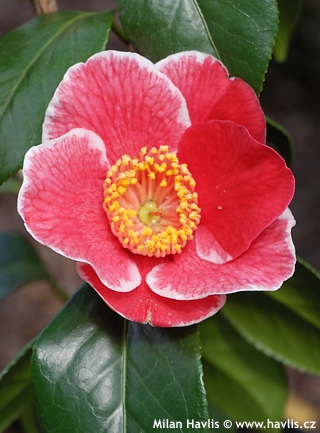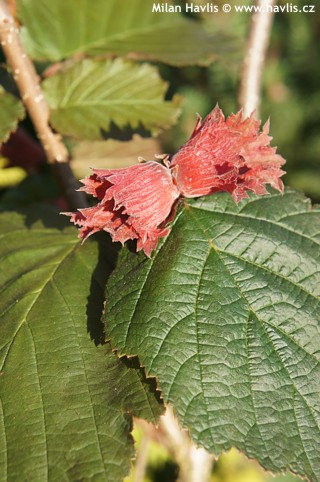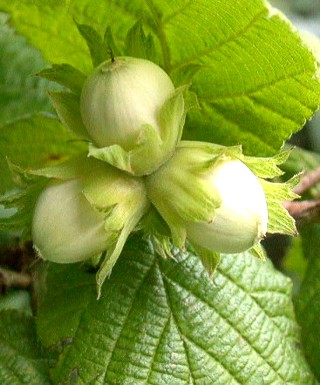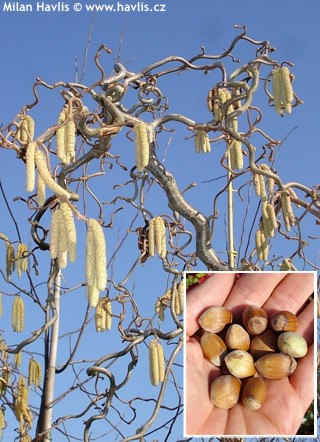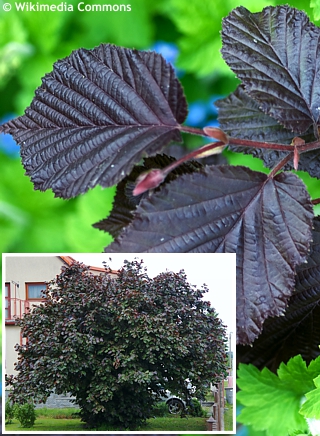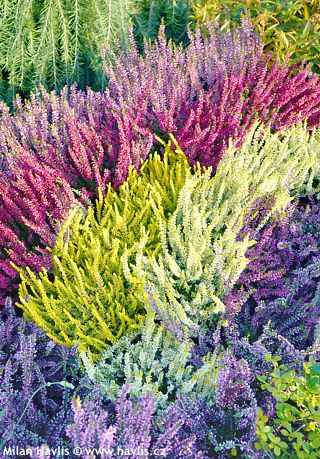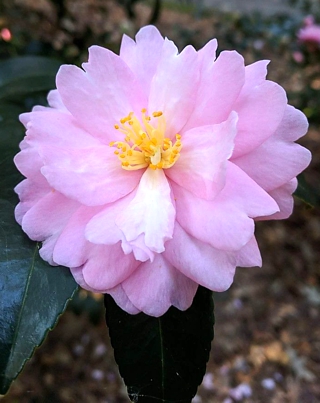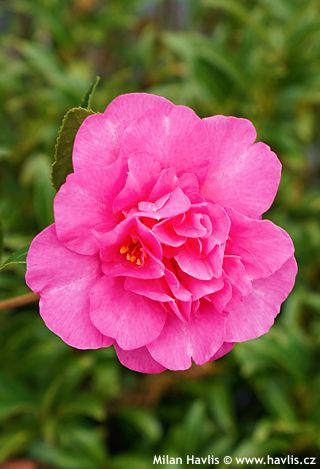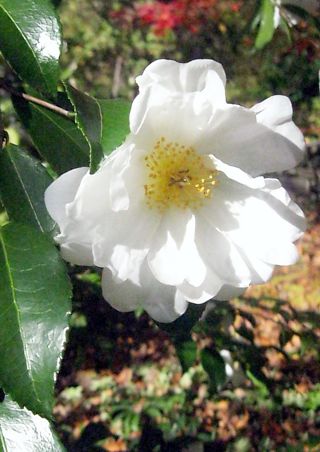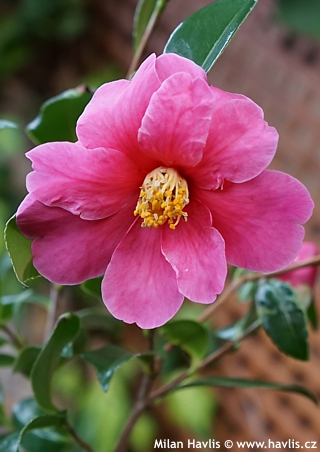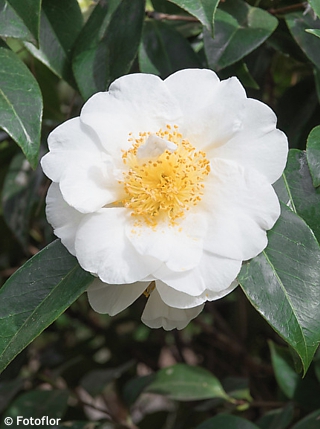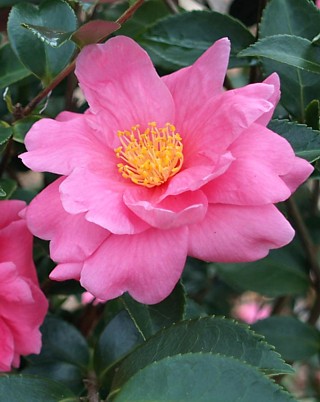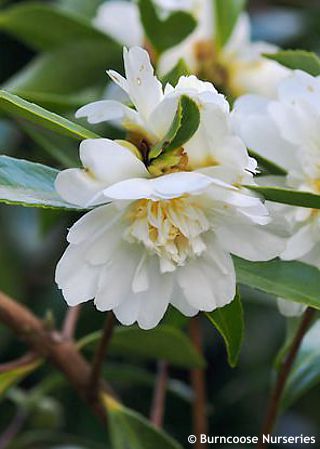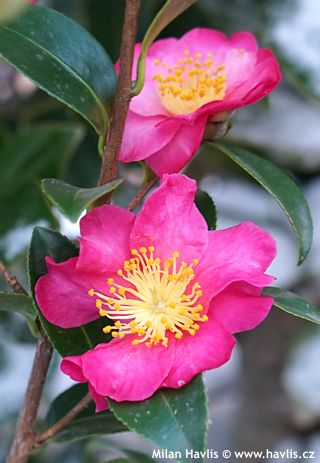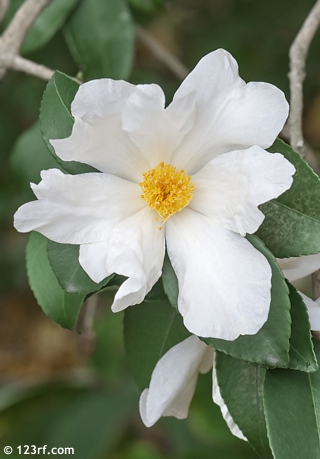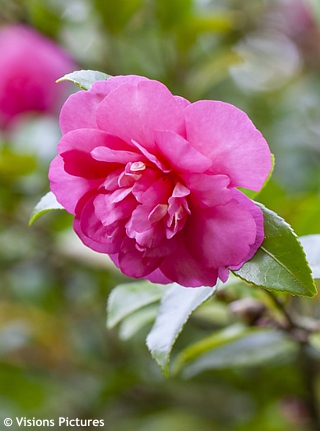CURRENTLY IN STOCK:
Arctic Dawn is an autumn flowering camellia bred by dr. Ackerman. It is a cross between a very hardy species camellia oleifera (cv. Lu Shan Snow) and camellia ‘November Pink’. It produces large, 10-12 cm across, semi-double to peony double, coral pink flowers with yellow stamens in the c ...

X - III

2 - 3m

1 - 1,5m

semi-shade to shade

6b (down to -21°C)

for zone 5+6

for zone 7
Snow Flurry is an autumn flowering camellia bred by dr. Ackerman introduced in 1987 (Maryland, USA). It is a cross between a very hardy species camellia oleifera and camellia ‘Frost Princess’ which also has c. oleifera genes. It produces mid-sized, 6-8 cm wide, semi-double to fully doubl ...

X - XII

1,5 - 2m

1,5 - 2,5m

semi-shade to shade

7 (down to -23°C)

for zone 5+6

for zone 7
Showa-no-sakae is a winter camellia variety which is often classified as Camellia sasanqua. Its pretty flowers are small to mid-sized (6-8 cm), peony-like, semi-double to fully double, medium to deep pink. It begins to bloom according to the maturity of the buds and the weather conditions, usually f ...

I - XII

2 - 3m

1,5 - 2m

semi-shade to shade

6b (down to -21°C)

for zone 5+6

for zone 7
Kingyo-tsubaki is another collectible gem among Japanese camellias. It was first described in Shirai-Bunko from 1789 and has so far received many names. Translation of its accepted Japanese name means goldfish camellia because its leaves are conspicuously divided at the apex into 3 tips, just like a ...

I - IV

1,5 - 2,5m

1,5 - 2,5m

semi-shade to shade

8 (down to -18°C)

for zone 5+6

for zone 7
Sanpei-tsubaki is a gentle companion of commonly showcase Japanese camellias. It originated in Japanese prefecture Aichi in 1966 and was named after Mr. Sanpei Oguri, jr. (tsubaki means camellia). Its flowers are rather small but very handsome. They single, anemone-like, 6 or 7-petalled, rose pink w ...

I - IV

1 - 1,5m

1 - 2m

semi-shade to shade

8 (down to -18°C)

for zone 5+6

for zone 7
European hazelnut is a well-known shrub of European woodlands which is popular mainly for its fruit - nuts. It is a suckering, thicket-forming shrub with numerous upright stems. As it is a dense and large shrub it is commonly used as a screening plant. It will also make a wild hedge which should be ...

II - III

2 - 4m

2 - 4m

full to partial sun

4 (down to -34°C)

for zone 5+6

for zone 7
Hazel is a well-known shrub of European woodlands which is popular mainly for its nuts.
It is a suckering, thicket-forming shrub with numerous upright stems. As it is a dense and large shrub it is used as a screening plant. It will also make a wild hedge which should be controlled if required compa ...

II - III

2 - 4m

full to partial sun

4 (down to -34°C)

for zone 5+6

for zone 7
Contorta is a contorted version of our European hazelnut. It was found as a spontaneous mutation of a branch in a hedge in Tortworth, England, in the middle of 1800’s by a Victorian gardener Canon Henry Nicholson Ellacombe. Enthusiastically and willingly he cut off a twig brought it to his fri ...

II - III

2 - 3m

2 - 3m

full to partial sun

4 (down to -34°C)

for zone 5+6

for zone 7
Filbert is a hazelnut species from S.E. Europe and S.W. Asia and exhibits a vigorously growing many-stemmed shrub with deciduous leaves. Purpurea is an old variety with deep maroon to near black leaves. They are 5-12 cm long, 4-10 cm wide, and during summer the colour of maturing leaves changes to d ...

II - III

3 - 6m

3 - 6m

full sun

4 (down to -34°C)

for zone 5+6

for zone 7












